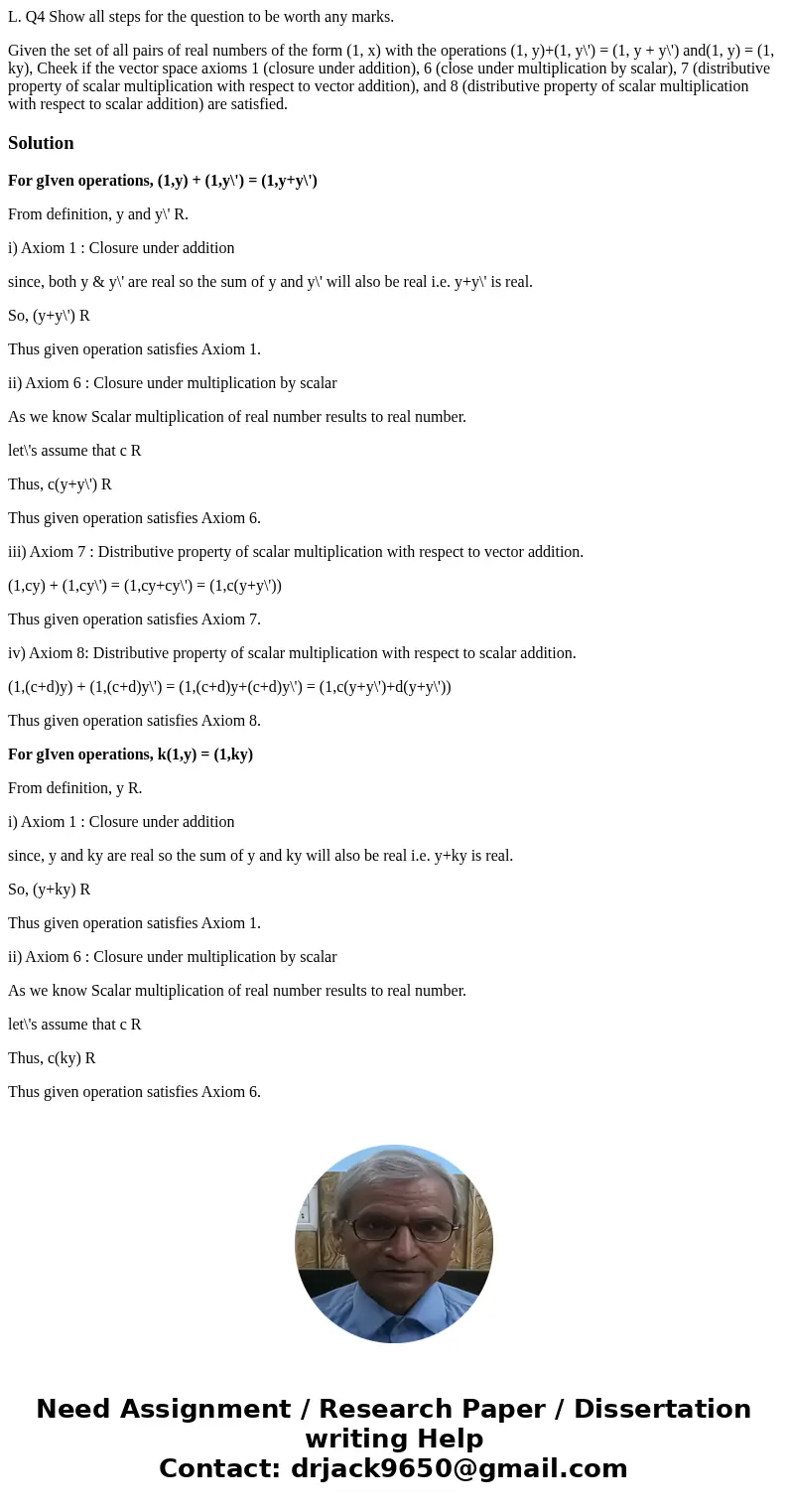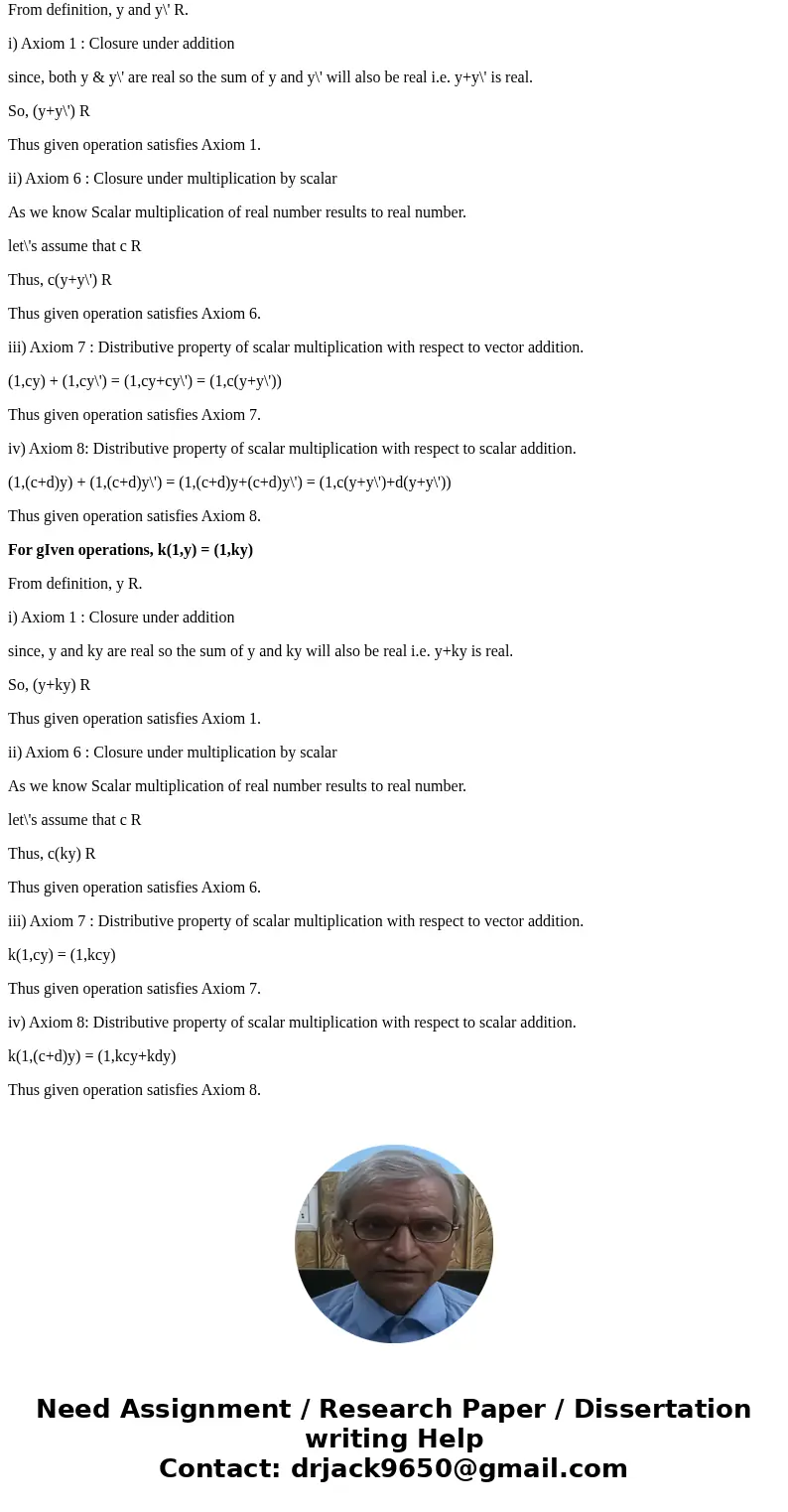L Q4 Show all steps for the question to be worth any marks G
L. Q4 Show all steps for the question to be worth any marks.
Given the set of all pairs of real numbers of the form (1, x) with the operations (1, y)+(1, y\') = (1, y + y\') and(1, y) = (1, ky), Cheek if the vector space axioms 1 (closure under addition), 6 (close under multiplication by scalar), 7 (distributive property of scalar multiplication with respect to vector addition), and 8 (distributive property of scalar multiplication with respect to scalar addition) are satisfied.Solution
For gIven operations, (1,y) + (1,y\') = (1,y+y\')
From definition, y and y\' R.
i) Axiom 1 : Closure under addition
since, both y & y\' are real so the sum of y and y\' will also be real i.e. y+y\' is real.
So, (y+y\') R
Thus given operation satisfies Axiom 1.
ii) Axiom 6 : Closure under multiplication by scalar
As we know Scalar multiplication of real number results to real number.
let\'s assume that c R
Thus, c(y+y\') R
Thus given operation satisfies Axiom 6.
iii) Axiom 7 : Distributive property of scalar multiplication with respect to vector addition.
(1,cy) + (1,cy\') = (1,cy+cy\') = (1,c(y+y\'))
Thus given operation satisfies Axiom 7.
iv) Axiom 8: Distributive property of scalar multiplication with respect to scalar addition.
(1,(c+d)y) + (1,(c+d)y\') = (1,(c+d)y+(c+d)y\') = (1,c(y+y\')+d(y+y\'))
Thus given operation satisfies Axiom 8.
For gIven operations, k(1,y) = (1,ky)
From definition, y R.
i) Axiom 1 : Closure under addition
since, y and ky are real so the sum of y and ky will also be real i.e. y+ky is real.
So, (y+ky) R
Thus given operation satisfies Axiom 1.
ii) Axiom 6 : Closure under multiplication by scalar
As we know Scalar multiplication of real number results to real number.
let\'s assume that c R
Thus, c(ky) R
Thus given operation satisfies Axiom 6.
iii) Axiom 7 : Distributive property of scalar multiplication with respect to vector addition.
k(1,cy) = (1,kcy)
Thus given operation satisfies Axiom 7.
iv) Axiom 8: Distributive property of scalar multiplication with respect to scalar addition.
k(1,(c+d)y) = (1,kcy+kdy)
Thus given operation satisfies Axiom 8.


 Homework Sourse
Homework Sourse